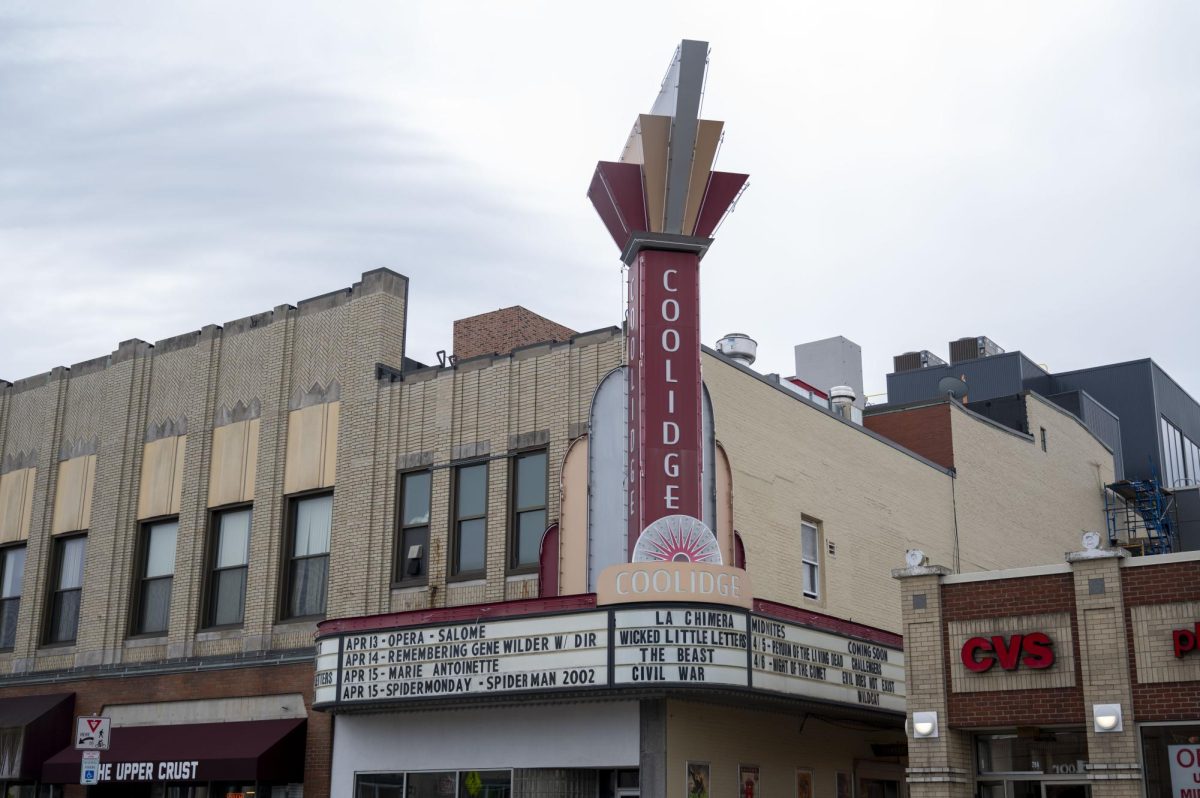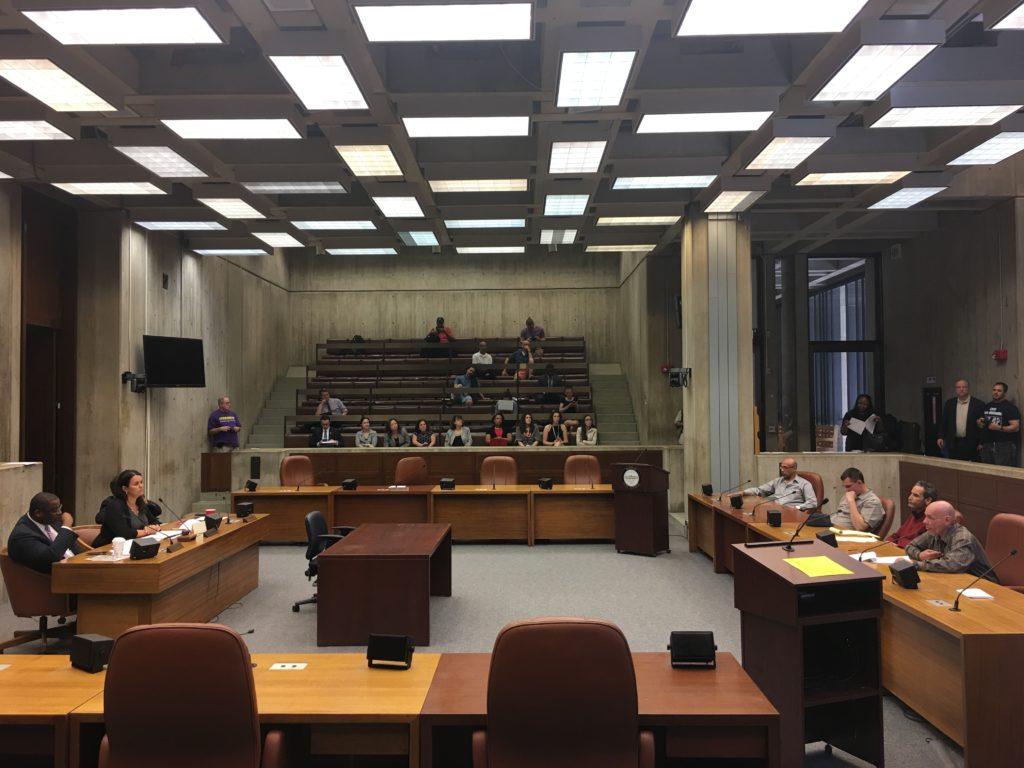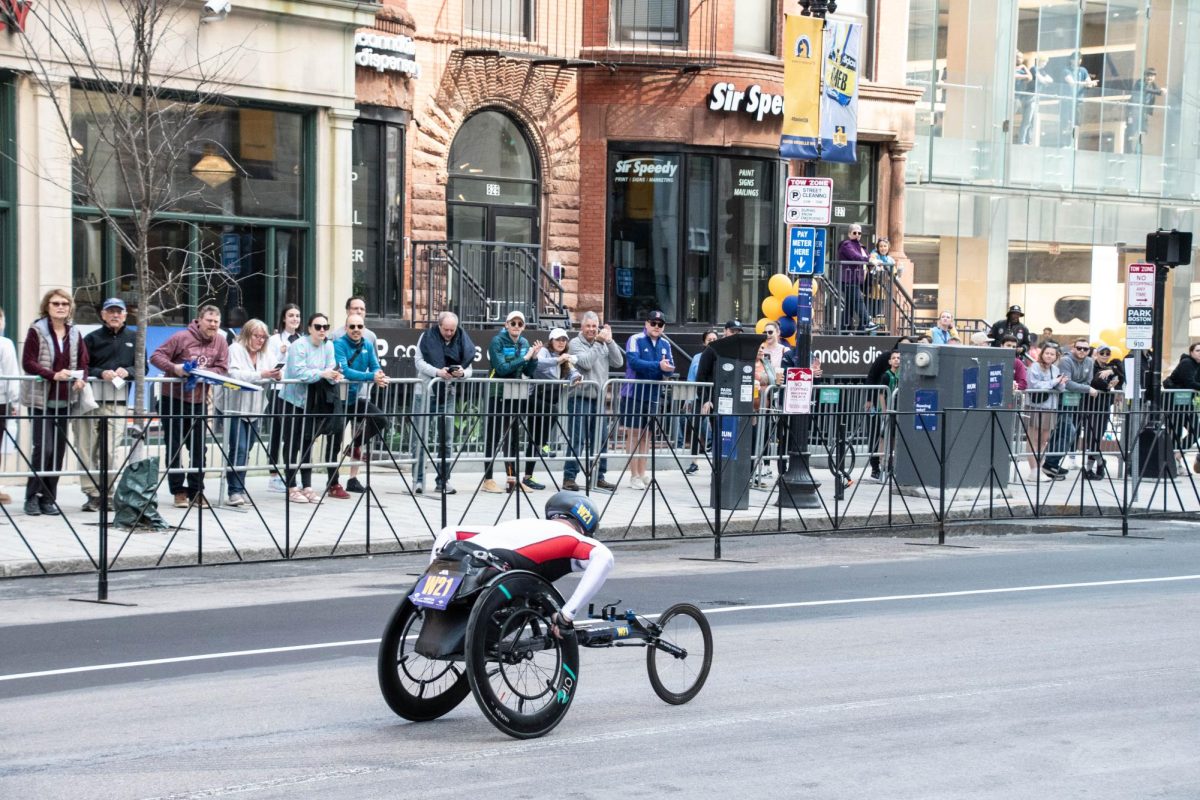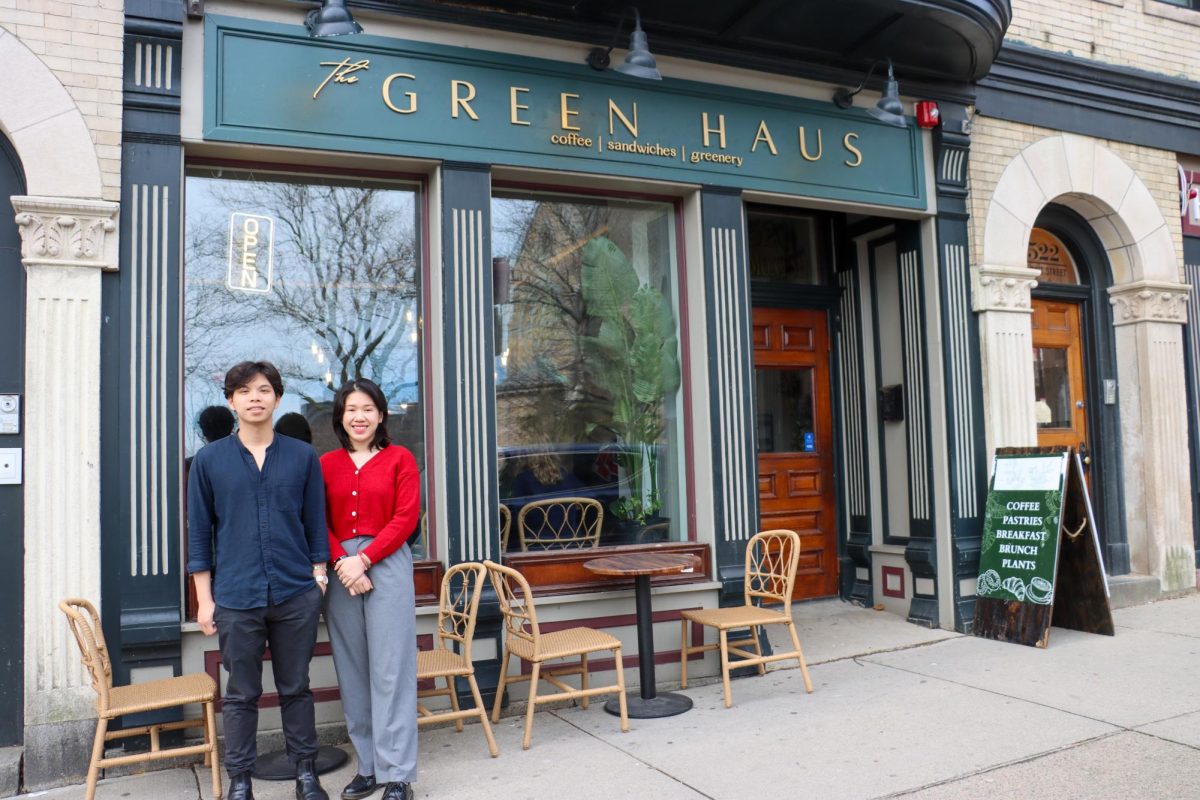By Alex Eng, deputy city editor
City officials, advocates for the homeless and homeless people criticized the city’s closing of two transitional housing and drug recovery programs at the Southampton Street Shelter during a City Council hearing Tuesday.
Project Stability, Opportunity, Achievement and Recovery (SOAR) and Safe Harbor, recovery programs for homeless people – including those who are HIV-positive, will be closed at the South End homeless shelter July 1. The closures are a result of the federal Department of Housing and Urban Development (HUD) shifting funding from transitional to permanent housing for homeless people, as The News previously reported.
The programs’ current residents, some of whom sharply criticized the city’s decision at the hearing, will no longer have access to 40 bunk beds, which serve as emergency shelter beds, from 7 a.m. to 3 p.m.
City Councilor and mayoral candidate Tito Jackson (D-7), who sponsored the hearing, criticized the timing of the Boston Public Health Commission’s (BPHC) decision to close the two programs. Although the BPHC members testified they had known about the federal funding cuts last spring, they informed the programs’ participants about the closings on March 9 of this year.
“The City of Boston pulled the rug out from under this group knowing with over a year of lead time that there was a crisis created by the BPHC,” Jackson said. “To hear again that the BPHC has created an artificial crisis for the most vulnerable people in the City of Boston really questions whether or not we’re living up to the mission of protecting the most vulnerable in Boston.”
The decision to close the programs rattled many who will have to face significant changes in their living situations, said Safe Harbor participant Edwin Torres.
“Out of the 20 [Safe Harbor residents], since we received this news on such short notice, three relapsed and went back to jail,” Torres said. “Seven others have relapsed, been thrown out or left on their own. […] We already lost 10 people.”
Torres and other testifying participants implored the city to keep the transitional programs running.
“I’m an addict and a homeless person,” Torres said. “But at this most vulnerable time, if these programs are helping people, why are they closing its doors?”
BPHC Homeless Services Director Beth Grand said each resident would be rapidly re-housed following the program closings.
“We’ll be focusing on the rapid re-housing model, which brings guests from outside into permanent housing, cutting out the middle step,” Grand said. “This is a proven best practice, and it replaces the old way of staying in a housing program for two years while you become housing ready.”
Following HUD’s funding shifts, BPHC will adopt a housing-first model of providing permanent housing, financial assistance, job training and other services to homeless people rather than offering transitional housing as an intermediary waypoint.
After July 1, each of the shelters’ former program participants will be eligible for up to $4,000 in financial assistance, as well as housing search and stabilization services, Grand said.
The aid, however, would not cover the high costs of rent in Boston, Jackson said.
“To toss people who are in this position into the market rate of [housing in] the City of Boston, I don’t believe is real transition,” Jackson said. “I don’t believe it really puts people in a position where they’re really not back in homelessness.”
Advocates for the homeless said the quick environmental shift would be dangerous for the programs’ participants, who require stable living conditions.
“Living in shelters or on the streets or other precarious situations is detrimental to HIV health and wellness,” said Morrigan Phillips, the Boston Living Center program director at housing nonprofit Victory Programs. “Stability means better engagement and care and better outcomes.”
Those who are HIV-positive may need more rest during the day, according to testifying participants, but the shelter beds will now be unavailable until evenings.
The shift could also harm recovering drug addicts by placing them “wet” living situations with access to drugs and without access to resources, said Boston Homeless Solidarity Committee spokesperson Cassie Hurd.
“There certainly isn’t adequate affordable housing stock for them to be rapidly re-housed […] even when they would have sought enrollment to the transitional recovery programs,” Hurd said. “There will be time when folks will be without the dedicated bed, supportive services and space that is necessary for many to remain healthy and maintain their recovery while waiting for housing, which is extremely dangerous.”













